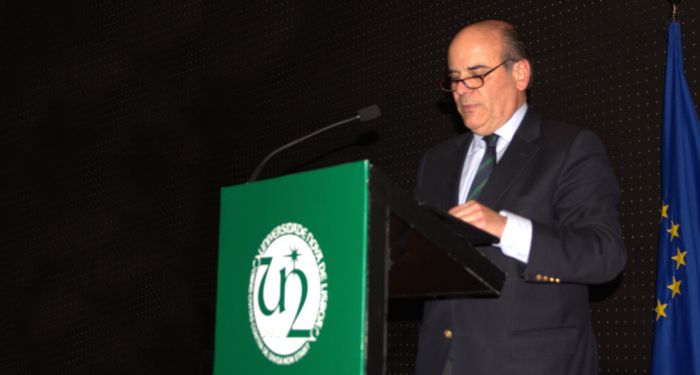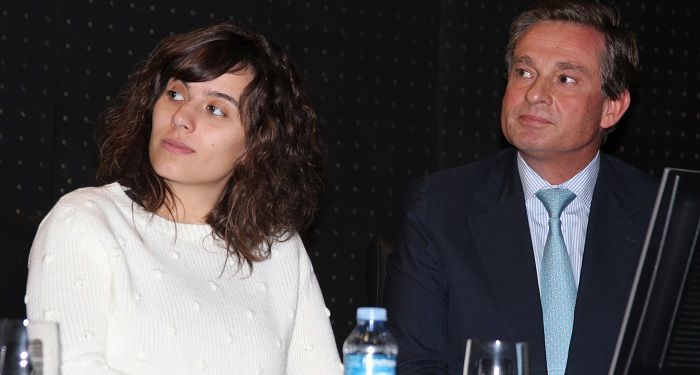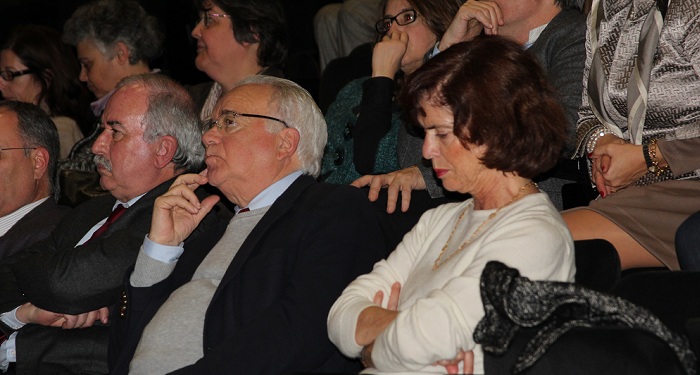
Ladies and Gentlemen good afternoon,
First of all I want to thank João Paulo Crespo, Patrícia Rosado Pinto e Elaine Walsh, and their teams, who turned this project into reality.
My next thanks go to all the speakers who, with their personal statements, gave a special flavor to this session.
A special welcome is due to the doctoral students. This session is dedicated to you.
Warm greetings to the members of NOVA: President of the General Council, members of the Rectoral Team, Deans of all the Academic Units, Professors, Researchers and Administrative staff.
Dear guests,
The project of NOVA Doctoral School is supported by Caixa Geral dos Depósitos and by the Council of Deans of NOVA, to both I wish to express my gratitude.
In Europe, doctoral education has a strategic place between two interlinked areas: Research and Higher Education. The policy concerning Doctoral Education in Europe is clearly defined in a series of documents ranging from the Bologna Declaration in 1999 to the Salzburg Principles (2005 2010).
In Portugal the relationship between research and higher education deserve a lot of attention because only recently the two systems have started a real collaboration. I hope that today we are making a significant and lively contribution to this issue. Addressing PhD education is an essential role for universities and not only for research centres.
In this brief communication I will focus on two points:
Let’s start with the initial Salzburg Principles which are as follows:

In 2010 the Council of Doctoral Education (EUA-CDE), established in 2008 by the European University Association, reviewed the Salzburg Principles and attempted to develop a list of regulations in order to standardise Doctoral Education in Europe. However, implementing the recommendations at institutional level depends on local, regional and national factors.
Among the recommendations, the EUA-CDE indicated that it is the institutional responsibility to provide support structures (tools, training, working conditions, etc.) to the doctoral candidate for their personal and professional development.
The EUA-CDE proposed also a list of concrete actions which should be undertaken by the universities to implement these recommendations:
In Portugal it is, I believe, the first time that this global approach to doctoral education is taken. So we are launching a Doctoral School respecting the European guidelines.
Are we happy?
Of course we are because today’s event marks the summit of a long road that will never be finished but we are moving ahead and with a worldwide prestigious partner: The Graduate School of Imperial College, London.
I could never have imagined when I walked along Cromwell Road on my way to Fulham Road, to the Brompton Hospital and the Cardio-Thoracic Institute, wher
e I did my PhD, in the middle seventies, that I would be here talking to you about the Doctoral School of NOVA involving
Imperial which, by the way, merged with the Brompton Hospital and other prestigious hospitals as part of an exceptional enterprise leading to the foundation of the Imperial College of Science, Technology and Medicine!
I must also confess that this is not our first attempt to have joint activities with Imperial in this area because, a few years ago, when Mary Ritter was Pro-Vice-Chancellor at Imperial I tried, together with the Faculty od Medical Sciences, a much smaller scale attempt which was not successful. In this process we had the full support of the former British Ambassador in Portugal, Alex Ellis, to whom I wish also to express my gratitude.
It is about this human capacity to attempt, to fail and to succeed that I wish to talk to you.
In the September issue of the New England Journal of Medicine, when of the highest ranked medical journal, if not the highest, published an opinion paper entitled: "Cure for the common cold" written by a very prestigious medical and researcher called David Watts from the University of California, in San Francisco, School of Medicine.
The paper is not about science, it starts as follows: "Rumour has it that the medical profession suffers from too many cold and distant doctors" and deals with the training of medical students. The author goes on to mention Hippocrates who is believed to have said that some patients get well only by the goodness of their physicians and states that in our days compliance with drugs improves if the patients feel connected to their doctors.
Why is it that altruistic driven young students become so cold when faced with human suffering? The explanation for David Watts is simple: they have so much science crammed into their brains that they lose the touch with humanistic practices and values. And this factor, he believes, makes them fear engagement with patients with suffer or die. The essential at this stage is the assurance that we can survive within the crucible of danger and that the loss of personal safety is worth the risk. The cure for the malady of distance is to enter danger and come back alive.
He then asks if this skill can be taught just to state that the most boring lecture he ever attended was on compassion although he is passionate about the subject and to conclude that the art of medicine cannot be taught and points to the importance of role models. He reminds us that medical education in the early days had such people in highly consideration because they were engaged and committed to the profession to be later marginalized by a system of grantsmanship, national reputation and superior laboratory skills.
Finally he points to one interesting solution: poems and stories. Imaginative literature shows the richness of human relationships not by trying to direct our thinking but by inviting us to experience lives outside our own. We are exploring a different way of knowledge that is not intellectual but emotional. The brain informs but the heart decides. And for that exercise he suggests that students should be given a poem or a story each Monday and discuss it over a pizza on Friday.
Will there be resistance to this proposal? He envisages a lot coming from scientists who are the guardians of the medical school curriculum and who will want some measure of outcomes. But, he claims, one must remember that scientific assessment of humanistic values are little more than reflections in a parallel universe and will never tell the whole story. For that we must rely on imagination.
And he illustrates this need for imagination with part of a poem by William Carlos Williams, himself a medical doctor:
"It is difficult
To get the news from poems
But men die miserably every day
For lack
Of what is found there."
And he concludes: Embedded in the literature are clues that teach us to live with grace in a difficult world.
That is exactly what I wish you all to achieve besides the scientific excellence of your PhD degrees!
Thank you for your attention.
António Rendas
9/1/2013
Fotos: Elsa Caetano - All rights reserved